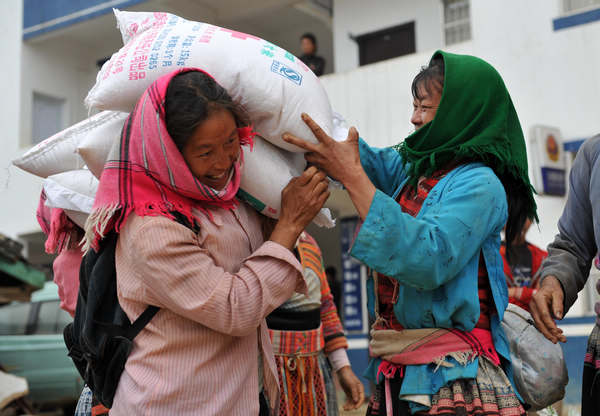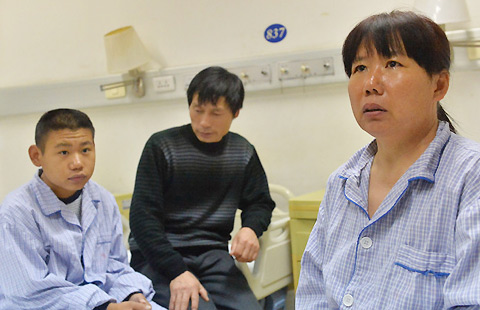Red Cross hopes to heal its reputation
By Shan Juan (China Daily) Updated: 2012-05-16 07:57
 |
|
A woman carrying rice provided by the Red Cross Society in Guangxi in April 2010. The society gave 30 metric tons of rice to low-income villagers in Longlin county. Zhou Hua / Xinhua |
Efforts to evolve
After suffering its first credibility crisis as a result of the Guo Meimei incident, the China Red Cross has learned to become more transparent and to better explain its role to the public that has been given a forum for debate by the rise of online social networks, said Deng Guosheng, who heads the NGO Research Center at Tsinghua University in Beijing.
When the crisis exploded, the China Red Cross began to use its Sina Weibo micro blog to communicate with the public and respond to questions and a large number of negative comments. "We need to listen to public opinion, no matter what," said Zhao.
In a further effort to improve and ensure transparency, the society launched an online platform in July to help the public keep track of donations. "Informing donors about how their money is used is crucial to building trust and a long-term relationship with them," said Sauve. He noted that individuals comprise the biggest donor group for the Canadian Red Cross, accounting for 80 percent of those who give money to the organization. Corporations represent just 10 to 15 percent of all donors.
"We provide a receipt for every donation of more than C$20 Canadian dollars ($20) and report back to donors on how we managed the donation," he said. The organization also releases an annual report on the management and use of donations. To reduce operating costs, donations of less than C$20 are not issued with a receipt. "We have to comply with the management of donations within a certain percentage of cost and the limit in Canada is 20 percent," explained Sauve, who added that the cost of using donations is also included in the annual report.
- Newspaper backfires after snapping photo of singer in mortuary
- US to cooperate in identifying fugitives on the run
- Li to explain China to business titans at economic forum
- More HK women find a passion for mainlanders
- PLA officers placed under investigation
- Former Nanjing mayor stands trial
- Nuclear power safer than ever
- Domestic vaccine for polio licensed
- Vets battle to save stricken panda in Shaanxi
- Heavy fog disrupts air traffic in Xinjiang






